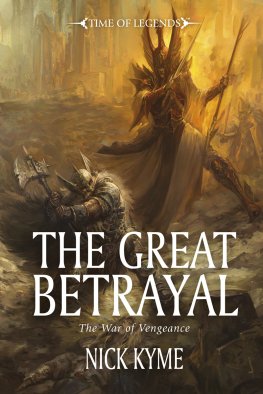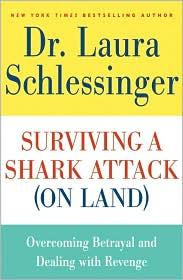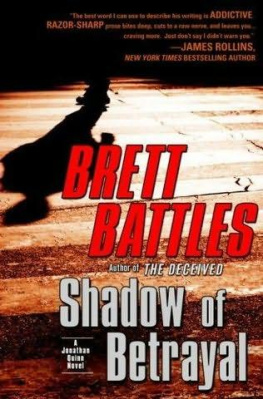
The George and Sakaye Aratani Nikkei in the Americas Series
Series Editors Valerie Matsumoto and Tritia Toyota
This series endeavors to capture the best scholarship available illustrating the evolving nature of contemporary Japanese American culture and community. By stretching the boundaries of the field to the limit (whether at a substantive, theoretical, or comparative level), these books aspire to influence future scholarship in this area specifically and Asian American studies more generally.
Barbed Voices: Oral History, Resistance, and the World War II Japanese American Social Disaster, Arthur A. Hansen
Beyond the Betrayal: The Memoir of a World War II Japanese American Draft Resister of Conscience, Yoshito Kuromiya, edited by Arthur A. Hansen
Distant Islands: The Japanese American Community in New York City, 18761930s, Daniel H. Inouye, with a foreword by David Reimers
Forced Out: A Nikkei Womans Search for a Home in America, Judy Kawamoto
The House on Lemon Street, Mark Howland Rawitsch
Japanese Brazilian Saudades: Diasporic Identities and Cultural Production, Ignacio Lpez-Calvo
Relocating Authority: Japanese Americans Writing to Redress Mass Incarceration, Mira Shimabukuro
Starting from Loomis and Other Stories, Hiroshi Kashiwagi, edited and with an introduction by Tim Yamamura
Taken from the Paradise Isle: The Hoshida Family Story, edited by Heidi Kim and with a foreword by Franklin Odo
Beyond the Betrayal
The Memoir of a World War II Japanese American Draft Resister of Conscience
Yoshito Kuromiya
edited by Arthur A. Hansen
U NIVERSITY P RESS OF C OLORADO
Louisville
2021 by University Press of Colorado
Published by University Press of Colorado
245 Century Circle, Suite 202
Louisville, Colorado 80027
All rights reserved

The University Press of Colorado is a proud member of the Association of University Presses.
The University Press of Colorado is a cooperative publishing enterprise supported, in part, by Adams State University, Colorado State University, Fort Lewis College, Metropolitan State University of Denver, Regis University, University of Alaska, University of Colorado, University of Denver, University of Northern Colorado, University of Wyoming, Utah State University, and Western Colorado University.
ISBN: 978-1-64642-183-1 (hardcover)
ISBN: 978-1-64642-184-8 (ebook)
https://doi.org/10.5876/9781646421848
Library of Congress Cataloging-in-Publication Data
Names: Kuromiya, Yosh, author. | Hansen, Arthur A., editor.
Title: Beyond the betrayal : the memoir of a World War II Japanese American draft resister of conscience / Yoshito Kuromiya ; edited by Arthur A. Hansen.
Other titles: George and Sakaye Aratani Nikkei in the Americas series.
Description: Louisville : University Press of Colorado, 2021. | Series: Nikkei in the Americas | Includes bibliographical references and index.
Identifiers: LCCN 2021034799 (print) | LCCN 2021034800 (ebook) | ISBN 9781646421831 (hardcover) | ISBN 9781646421848 (ebook)
Subjects: LCSH: Kuromiya, Yosh. | Heart Mountain Relocation Center (Wyo.) | World War, 19391945Draft resistersUnited StatesBiography. | Japanese AmericansForced removal and internment, 19421945. | Japanese AmericansCivil rightsHistory20th century. | Draft resistersUnited StatesBiography. | Internment campsWyoming20th century. | World War, 19391945Japanese Americans.
Classification: LCC D810.C82 K87 2021 (print) | LCC D810.C82 (ebook) | DDC 940.53/177787dc23
LC record available at https://lccn.loc.gov/2021034799
LC ebook record available at https://lccn.loc.gov/2021034800
This publication was made possible, in part, with support from the University of California Los Angeless Aratani Endowed Chair in Asian American Studies.
Cover illustration by Yoshito Kuromiya. Title-page illustration by Yoshito Kuromiya, ca. 2018.
To the memory of Fred Homi Iriye, whose life was cut short two days before his release from prison. Although he never regained his wrongly taken citizenship rights, his integrity was never questioned. Fred Homi Iriye was indeed a true patriot.
Yoshito Kuromiya
In honor of militant Japanese American journalist James Matsumoto Omura for courageously exercising his freedom of the press rights to support, on constitutional grounds, the military draft challenge of Yoshito Kuromiya and his fellow resisters of conscience at the World War II Heart Mountain concentration camp.
Arthur A. Hansen
The war challenged Japanese Americans to justify themselves before an America more interested in revenge against the Japanese enemy than in an emerging minority just entering its second generation. The question is, Did it emerge?
Frank Chin, Born in the USA (2002, xvii)
Contents
Lawson Inada
Eric L. Muller
Yoshito Kuromiya and Arthur A. Hansen
Arthur A. Hansen
Arthur A. Hansen
Lawson Fusao Inada
Bill Hosokawa
Yoshito Kuromiya
Lawson Inada
From out of the abuses,
From out of the cruelties,
From out of the losses,
From out of the tragedies,
Emerges this lucid voice
Of this honorable person.
Eric L. Muller
The book you are holding is an important document.
The past couple of decades have seen the long-overdue emergence of a significant literature on the Nisei draft resistance movements in the War Relocation Authority (WRA) camps of World War II. Nearly all of it, though, has been from the perspective of outsiders to those movementspeople like myself who were not present to witness them. What is special about this memoir is that it is a detailed account from within: the penetrating narrative of the draft resistance movement at the Heart Mountain concentration camp in northwest Wyoming from the perspective of a thoughtful and brilliant man who actually participated in it.
Several things distinguish Yosh Kuromiyas account of this important chapter in American history. First, Yoshand I will speak of him in the present tense, as he lives on through this memoiris an extraordinarily gifted writer, a natural if ever there was one. When I first interviewed him in the late 1990s, it was evident to me that he had a remarkable command of language; he chose his words carefully and deployed them with precision. But the experience of reading Yosh exceeds even the experience of listening to him. The prose in this volume is crisp and evocative and wry and compelling from first word to last. The draft resistance movement at Heart Mountain relied on the words of its most senior members, pronouncements that could sometimes be stilted and ponderous. They would have done very well to enlist Yosh as their speechwriter.
Second, Yosh is willing to acknowledge dissension and disagreement among the ranks of the young resisters who went to jail and between that group and their leadership, the somewhat older men who organized the resistance movement. I cant emphasize enough how new and important this is, or how much richness and humanness Yoshs account adds to our understanding of the dynamics of resistance. For decades the Japanese American community and the scant academic literature have been largely satisfied with caricatures of the young Nisei on both sides of the question of complying with or resisting military service. On this account, those who served were, to a man, heroes and patriots. When the story of the resisters finally began to emerge from the shadows, it followed the same pattern: every man who resisted was cast as a resister of conscience, motivated by carefully formulated and deeply held convictions about moral and constitutional principle. Yosh is too keen an observer of human nature for such caricatures. He says what no other resister has dared publicly admit: that there were tensions within the movement, that some of the resisters and even some of the leaders occasionally did things that led him to wonder whether everyone was acting for the same reasons and the right reasons. Yoshs memoir reminds us that these men were beset by the sorts of conflicts in motive and interest that would naturally emerge in any group of human beings. We would be well served by a memoir from a Nisei veteran that comparably breaks the caricature of every single Nisei soldier as a heroic patriot, though I do not expect to see one.



 The University Press of Colorado is a proud member of the Association of University Presses.
The University Press of Colorado is a proud member of the Association of University Presses.









